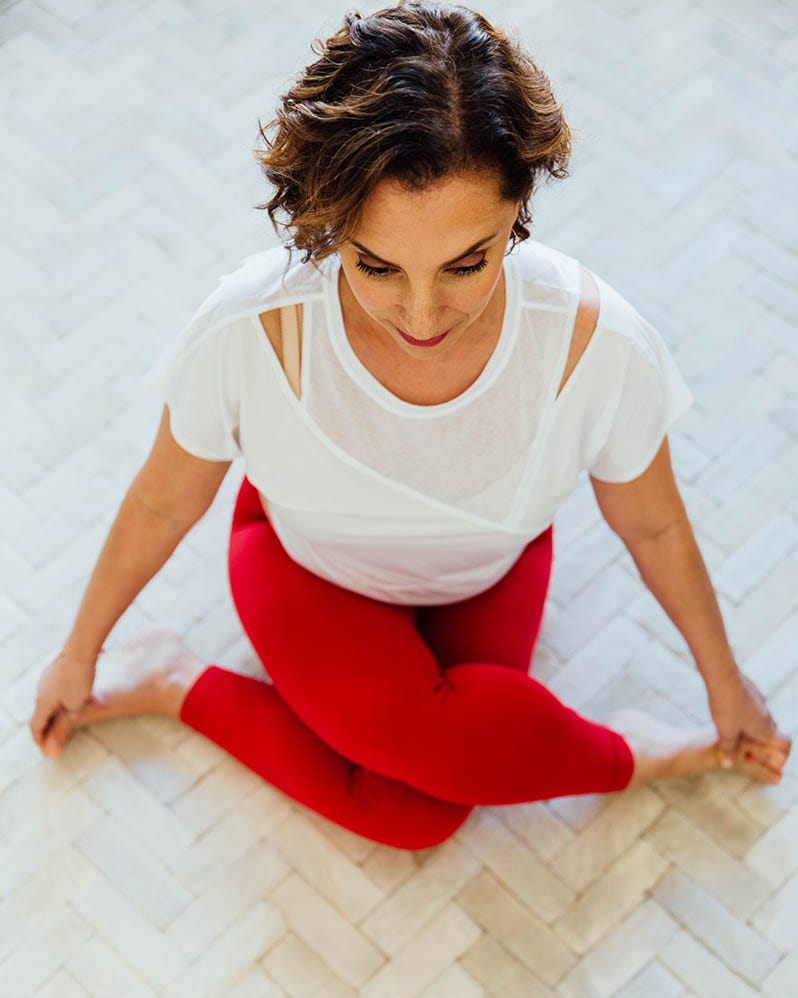#11 Have you ever had an injury from yoga?
I have. And it could've been avoided.
This week: Jason and I published a podcast answering student questions about yoga injuries. And the memories of my own past injuries came flooding back.
I remembered the year I spent doing Mysore-style Ashtanga and my well-meaning teacher would stand behind me and wrap her arms around my torso while I was in a forward bend with my hands under my feet. She’d presssss my torso even tighter against my quads.
Long story short: I spent close to a year in pain nearly all day long.
I did not learn. I returned to a different Ashtanga room once I was healed — I missed the practice! The heat! — and allowed the teacher to lay onto my back in Badhha Konasana pressing my chest to the ground.
Another several months of pain followed. I learned this time. I stopped doing Ashtanga. I stopped allowing teachers to adjust me. And everything improved.
Fast forward several years later, I’m at a Yoga Journal conference in Wisconsin, playing around in a very unique type of yoga class. I’m watching some pretty kooky demos while students are ohhing and ahhing and I’m thinking — Nope. Just no. That is not happening.
I’m paired up with another young woman and we both decide we are, in fact, not going to do Bakasana on each other’s backs. The teacher walks over to us and starts questioning us, prodding us to do it. He started by trying to joke about it.
When I patently refuse, he gets visibly pissed. He chide me, tries to embarrass me into doing it. To this day, I am SO PROUD that I held my ground. Why should I sacrifice my bodily comfort and safety for his eyeballs, for his ego? for
I told this story on the podcast this week, but it still burns me up to think about it.
So I want to ask you:
Have you ever had an injury that happened because of yoga?
Do you think it could have been avoided?
Lastly — do you see teachers continuing to do harsh, deepening adjustments in yoga rooms? I’m really curious about where we are as a community with this issue.
Here’s the episode:






We had a teacher at Past Tense who once said something to the effect of if you're a level 1 student do this, if you're level 2 do this, if you're level 3 you'll listen to your body in this moment and take the shape that works for you today. I don't thinks she used the word level, but I can't remember exactly what it was she said. But the point was so clear and gave students such wonderful guidance: If you're an advanced practitioner than you'll set ego and peer pressure and all of that aside and listen to your body.
I also think as teachers we need to trust our students a lot more than we used to or were probably taught to. Part of this practice is learning to be embodied, not disassociated. And some of what we're talking about -- thank you for the conversation -- didn't just cause physical injury, but a distrust and disassociation of our body's own cues. How does that trickle up to the mind and spirit? Or show up off the mat?
Never got injured in yoga class, TG. I’m not longer teaching but as a teacher I found that the more I knew the less certain I was about adjustments, for two reasons. One, I didn’t feel I knew everyone’s body well enough to always do the right thing. I only did stuff I thought had to be harmless at worst, but I made mistakes, and one doesn’t know the other person’s body if they’re a stranger. Second, people have very rightfully become more aware of issues with touching, and I never fully worked out how to deal with that. I had one bad experience, not with adjustments but a talk I gave on yoga history, from a young woman who was hostile, I believe basically because I am an older white man, which really made me more gun shy. So I was experimenting with various methods, consent cards etc, until my retirement, but nothing seemed easy. I’d really enjoyed giving adjustments, and I think it can be so healing, people thrive with the right sort of touch. I was sad I was more or less giving it up. Ignorance was blissful while it lasted. Nonetheless it is a good thing that people are giving more thought to this practice.